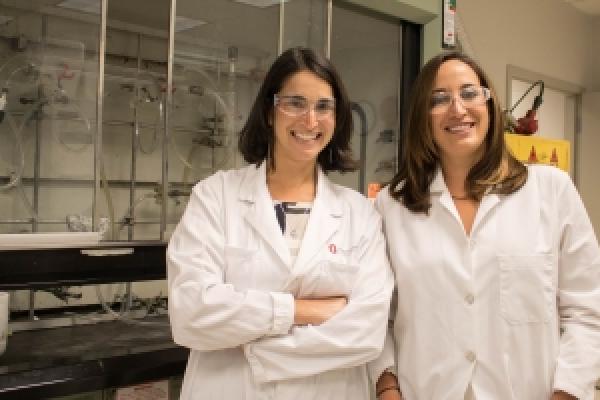Dr. Wrighton receives 2017 DOE Early Career Award!

Ohio State's Newest Energy Stars
Two Ohio State researchers are among just 59 receiving five-year, 2017 Department of Energy (DOE) Early Career Awards to advance high-impact energy research. This puts them in an elite group of the nation’s top young energy researchers. Hannah Shafaat, assistant professor in chemistry and biochemistry, and Kelly Wrighton, assistant professor in microbiology, join chemist Robert Baker, Ohio State’s first DOE award winner in 2015, and its second, chemist Abraham Badu-Tawiah, in 2016.
Now in its eighth year, DOE taps into a nationwide pool of more than 700 researchers in universities and DOE National Labs to identify and support innovative work. Wrighton’s $797,000 award “targets knowledge gaps” in microbial methane processes in soil to improve carbon-cycling transport models across terrestrial-aquatic environments. Shafaat aims to “bring inorganic carbon to life.” Her $750,000 grant supports the development and characterization of model nickel enzymes to efficiently convert CO2 and CO into liquid fuels.
Upon arrival at Ohio State in 2015, Kelly Wrighton quickly established a research group that soon saw something unexpected: methane-production in oxygenated soils — a finding in stark contrast to prevailing global, carbon-cycling models that assume methane does not occur under these conditions. "I was always interested in understanding ‘how things work,’ and was hooked from the moment I heard microbes had the power to clean up oil spills," said Wrighton. "I wanted to explore how microorganisms might create ‘microbial engines’ that function for the advancement of society."
Wrighton’s DOE funding optimizes both lab and field investigations, opening new windows to get a closer look at these unexpected, highly important processes. The grant also allows her to “add more eyes” — another graduate student and postdoctoral researcher, along with giving two undergraduates the opportunity to conduct authentic, summer research. “We are building reactors in the lab to model soil processes happening in the field that will allow us to identify actual chemical and biological controllers of methanogenesis in oxygenated soils."
Methane, an important greenhouse gas, is significantly more potent than carbon dioxide. Wrighton’s work challenges current assumptions about how methane-producing microorganisms “behave” in natural systems. This has consequences at the global scale: methane emissions from wetland systems contribute about 40 percent to the atmosphere’s methane. “Our research will provide new insights into this microbial-catalyzed methane production, and collaborations with campus and DOE colleagues will enable better predictions of greenhouse gas production from a climatically relevant ecosystem.”
Wrighton is passing the torch to the next generation, taking concepts and data generated to the classroom to her environmental microbiology course, which educates approximately 40 undergraduate students every year. She received a PhD in microbiology from UC Berkeley and was a postdoc at UC Berkeley and at the DOE.
To read the full article, please visit the original post here.
